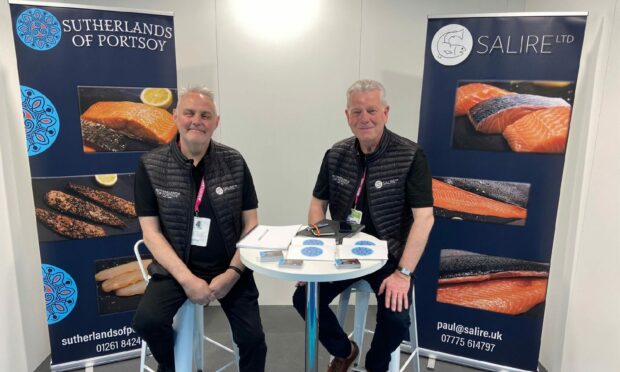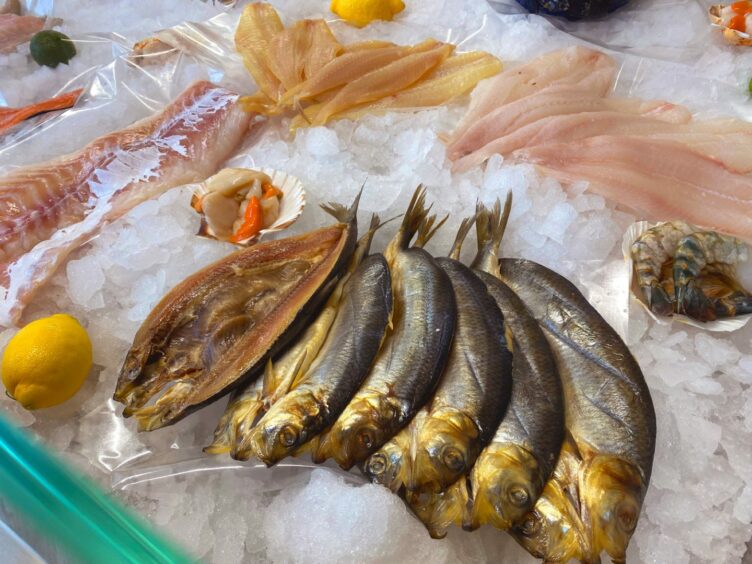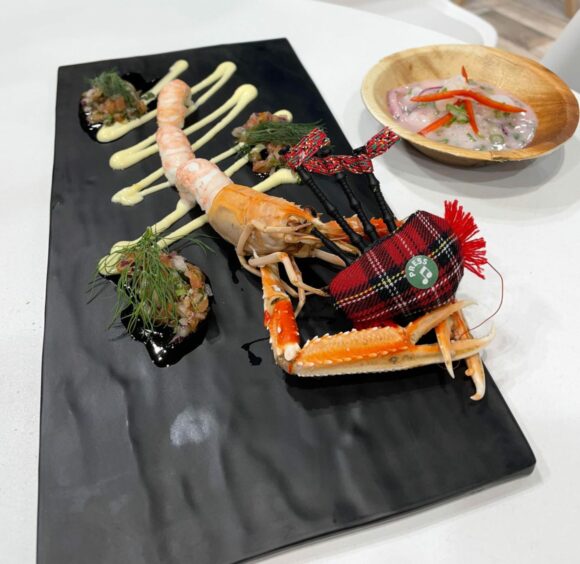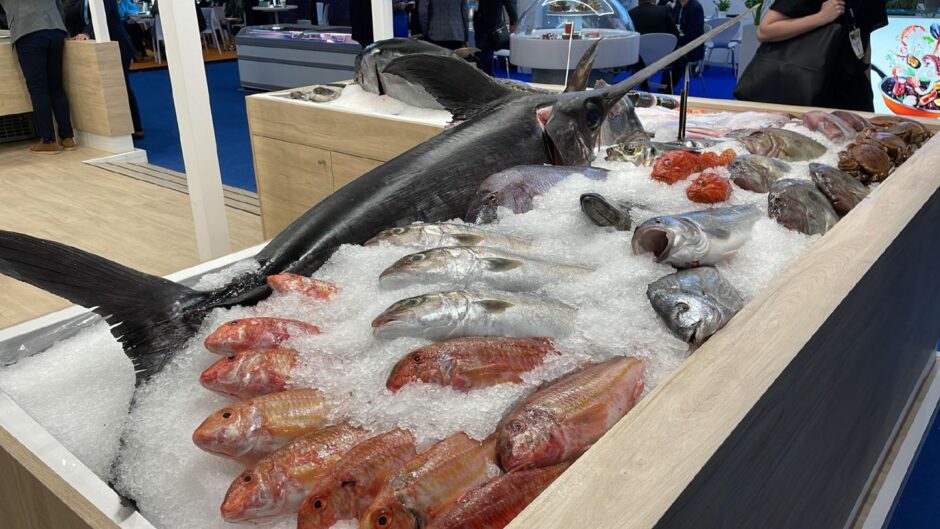Smoking salmon over coffee waste is just one of the innovations taking place at seafood company Sutherlands of Portsoy.
John Farley, the Aberdeenshire firm’s owner and managing director, said the experiment was a big success and Sutherlands would continue to smoke fish this way.
Mr Farley said the initiative was helping Sutherlands – established in 1908 – to offset some of its rocketing input costs, while also reducing the company’s carbon footprint.
Sutherlands was among a raft of Scottish suppliers at the world’s largest seafood trade show, Seafood Expo Global (SEG), this week.
Speaking during the three-day event in Barcelona, after a change of location from pre-pandemic editions in Belgium, Mr Farley said: “We’ve been at the Brussels show several times but this is the first time we’ve ever had a stand.
New use for old beans
Sutherland’s raw materials have rocketed in price this year.
The idea for a new and cheaper material over which to smoke fish sprang from a meeting between Mr Farley and a coffee producer.
“Coffee waste has produced incredible results,” Mr Farley said, adding: “We started trials about 12 months ago.
“We couldn’t believe the results – they were astonishing. Our taste testers thought it was truly amazing.”
Fish is traditionally smoked over burning shavings of oak casks.
Using coffee waste instead does not impart any unwanted taste to the salmon, Mr Farley said.
Most of the coffee flavour has already gone out of the beans by that stage, he added.
Mr Farley said the price of salmon soared more than 60% during the first three months of this year, to in excess of £10.50 per kilo.
There is also a substantial waste cost as not all of the salmon is use.
Luxury food item
“Rapidly rising costs are making smoked salmon a luxury item, Mr Farley said, adding Sutherlands’ small, niche market was currently “very challenging”.
Fish farmers are facing their own hefty cost increases, but tighter supplies in the market and strong global demand are also pushing up salmon prices.
In addition, the Ukraine crisis and international sanctions against Russia are impacting the market.
Sutherlands has also been experimenting with using healthier salt types in its smoked salmon.
The aim is to reduce the sodium content of the firm’s cold smoked salmon products, while maintaining both the microbiology and taste.
Bosses hope being able to offer a healthier option will give Sutherlands a competitive edge, while the results of its research could be “shared within the sector for the betterment of all”.
A grant of £5,000 from Food and Drink Federation Scotland’s Reformul8 Challenge Fund has allowed the company to “look at the whole salt aspect” of its process.
It has been trying out sea salts, which are naturally lower in sodium than table salt.
Sutherlands sells smoked fish including salmon, smokies, kippers and mackerel, and a variety of other seafood products to wholesale and hospitality industry customers around the UK.
It also exports its fish to France, Germany, Italy, Spain, Singapore, the US and India.
We are meeting all the right kind of people – those who are able to move stuff around.”
John Farley, managing director, Sutherlands of Portsoy.
Mr Farley said exports to mainland Europe were hit “really badly” by Brexit, with many customers in the EU forced to choose between a hefty premium or going without.
Welcoming the return of the annual SEG event, he said: “I’ve met all sorts of people, including a contact from Qatar – a country with access to markets in other parts of the Middle East.
“We are meeting all the right kind of people – those who are able to move stuff around.”




Conversation